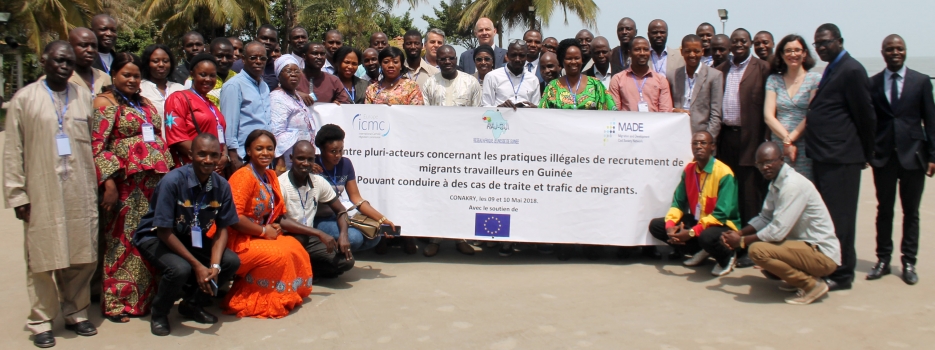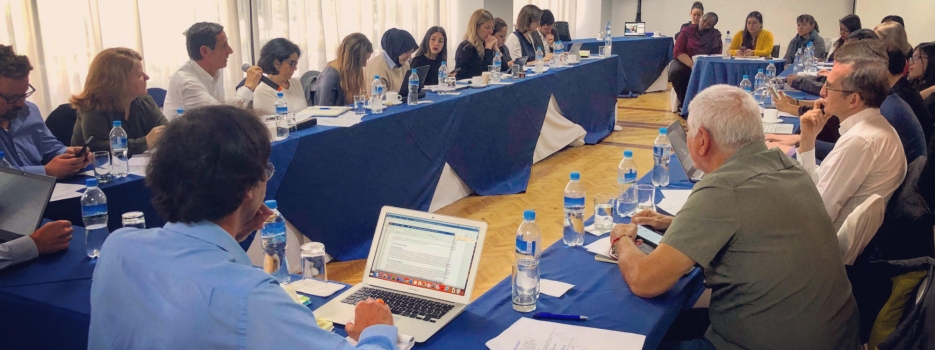From 20 to 30 October 2016, MADE Africa coordinator Caritas Senegal organized a joint observation mission to one of the migrant centers run by the International Organization for Migration (IOM) in Agadez, Niger. Working in partnership with other organizations, the mission’s aim was to monitor the implementation of one of the post-Valetta projects funded by the EU Emergency Trust Fund for Africa (EUTF) and more specifically to observe to what extent the rights of migrants and their freedom of movement are respected in accordance with the Protocols of the Economic Community of West African States (ECOWAS). These Protocols stipulate the right of ECOWAS citizens to enter, reside in and establish economic activities in the territory of other ECOWAS member states.
The observation mission engaged in advocacy activities with West African civil society organizations, as well as the collection of data on obstacles hindering migrant’s freedom of movement and their restricted access to basic social services. Partner organizations supporting the mission included the Nigerian Association for the Respect of Human Rights (ANDDH); the Mauritanian Association for the Respect of Human Rights (AMDH) based in Nouakchott; the Migration and Development Network (REMIDEV) based in Dakar on behalf of the MADE Network; and the Association Solidarity Visions (VS) based in Togo on behalf of the West African Observatory on migration.
The region of Agadez adopts a critical role in terms of receiving not only Nigerian migrants but also migrants of other nationalities coming from the ECOWAS region. Within the framework of the Valetta Action Plan, IOM, with support of the EU and other organizations, set up a reception and return center for migrants in Agadez (in the Sahara), a city known for the arrival of many migrants from Africa attempting to continue their way across the Mediterranean to Europe. In December 2016, Niger was officially praised by EU authorities for its efforts in terms of significantly reducing migratory flows to Europe and has benefited from financial support for more than 400 million euros. However, the border externalization policy of the EU is negatively affecting the principle of free movement of citizens within the ECOWAS region and is making migratory routes much more dangerous. Indeed, sub-Saharan migrants transiting through Niger are often the victims of various human rights violations, including the use of violence by police forces, arrests, expulsions and/or discriminatory access to basic services.
In light of this context, the mission took stock of the situation of migrants in the center and the current challenges they face. It came to the conclusion that there is a lack of information and data (both qualitative and quantitative) and a lack of sensitization campaigns on the consequences of irregular migration. Moreover, the Mission observed an apparent lack of assistance and support for migrants, especially to women, children and vulnerable persons. The Mission report suggested that migrant’s rights in the center are being violated and they are being forced to return to their countries of origin, despite Agadez being in the ECOWAS region. Civil society organizations also called on their own African governments to adequately adapt their national migration policies and law in line with the ECOWAS principles.
In terms of follow up and recommendations, the Mission emphasized the need to develop new potential perspectives for a better follow-up of the situation in Agadez and to establish a comprehensive migrant rights approach to effectively tackle the issue at stake.
As part of the information gathering process, a series of testimonies with the migrants themselves were reproduced, clearly illustrating the plight of migrant’s situation in Niger:
"I'm Senegalese, I've been in Libya for 6 months, but it's a difficult situation; We are hunted everywhere and all that we earn was taken. I wanted to cross and go to Europe, with my friends who were with me, but some died. And then I decided to go back to Senegal; then IOM agreed to take us back to Agadez, but on the way we were attacked and four of us had injuries to our backs and kidneys ... "
"My name is Alpha Baldé; I come from Kolda, I worked in Libya, and I saved money; But one day the groups took us, and they took all my savings; And put us in a prison; Every day they beat us; So, I escaped [...]"





